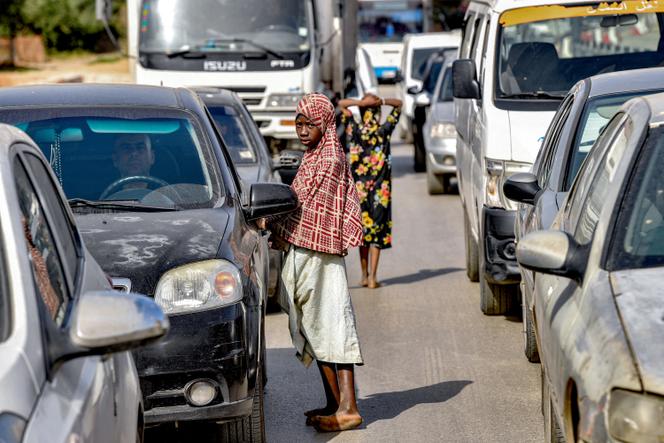


Aboubacar's life under the bridge near Bridja, in the commune of Staoueli west of Algiers, is anything but poetic. But the young Nigerien in his early 20s isn't complaining. For the past three months, he has been panhandling at the entrance to the communal market in Aïn Benian, the neighboring commune of Staoueli, where he has his "home" under the bridge. His goal is to make enough money and start "his business" to improve his daily life and send money to his family back home in Zinder, Niger.
To reach this suburb of Algiers, he had to travel "by truck" almost 3,300 km. While the journey between Zinder and the Algerian border may be made in more or less acceptable conditions, it starts becoming dangerous near In Guezzam in the far south-east of Algeria. "Because I don't have a visa, I enter illegally, and then I have to follow the guides, who can ditch you in the middle of the desert if Algerian customs officers chase you," he recounted.
A source of tension between Algiers and its southern neighbors, migration was the source of a diplomatic chill between Algeria and Niger. On April 3, 2024, the Algerian ambassador was summoned to Niamey in protest against the "violent nature" of operations to turn back West African migrants.
This chapter now seems partly closed with the visit of Nigerien Prime Minister Ali Mahamane Lamine Zeine to Algeria on August 13 and 14, along with a large ministerial delegation. They discussed the issue, which is made all the more complex by Algiers's lack of a clear policy, creating permanent uncertainty for migrants who live between the fear of being sent back and the hope of carving out a life for themselves in this country, where there is no shortage of job opportunities, particularly in construction.
Only Malians are exempt from visa requirements under an agreement between the two countries. They are considered "privileged" by other Sub-Saharans. Algerian Red Crescent president Ibtissam Hamlaoui noted that only Saharawis are considered refugees, while all others are migrants subject to Algerian entry and exit legislation. This makes it difficult, if not impossible, to have even an approximate idea of the number of these migrants.
Aboubacar said he was "lucky" to have crossed the Sahara without too much trouble, crediting an amulet, his "talisman," with "protecting" him. He shares his life under the bridge with his desert crossing companions. "We got to know each other during the trip and got used to each other. They're like my family now." Around 50 migrants, mostly women and children, have taken up residence here in rudimentary living conditions. Several women share the care of groups of children. A makeshift camp surrounded by fruit trees, where they sleep under the stars on filthy foam mattresses or directly on the brown earth.
You have 65.37% of this article left to read. The rest is for subscribers only.
